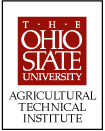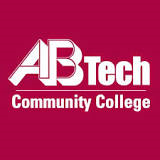What do they do?
Inspect agricultural commodities, processing equipment, and facilities, and fish and logging operations, to ensure compliance with regulations and laws governing health, quality, and safety.
Also known as:
Brand Inspector, Consumer Safety Inspector (CSI), Food Inspector, Food Safety and Inspection Service Inspector (FSIS Inspector), Food Safety Inspector, Food Sanitarian, Grain Inspector, Inspector, Meat and Poultry Inspector, Meat Inspector, Seed and Fertilizer Specialist, Shipping Point Inspector
-
2.1%
Change
Select a state to see its job growth rate ranking2,300Job Openings
Select a state to see its net job growth ranking
Looking for colleges that offer a specific major? Use the College Match Tool to find your best-matched schools and discover your estimated Net Price!
- Bachelor's degree (35%)
- Some college, no degree (23%)
- High school diploma equivalent (21%)
- Associate's degree (9%)
- Master's degree (7%)
- Less than high school diploma (4%)
- Doctorate or Professional Degree (<1%)
People in this career often have these skills:
- Quality Control Analysis - Conducting tests and inspections of products, services, or processes to evaluate quality or performance.
- Reading Comprehension - Understanding written sentences and paragraphs in work-related documents.
- Active Listening - Giving full attention to what other people are saying, taking time to understand the points being made, asking questions as appropriate, and not interrupting at inappropriate times.
- Monitoring - Monitoring/Assessing performance of yourself, other individuals, or organizations to make improvements or take corrective action.
- Critical Thinking - Using logic and reasoning to identify the strengths and weaknesses of alternative solutions, conclusions, or approaches to problems.
- Speaking - Talking to others to convey information effectively.
People in this career often know a lot about:
- Customer and Personal Service - Knowledge of principles and processes for providing customer and personal services. This includes customer needs assessment, meeting quality standards for services, and evaluation of customer satisfaction.
- Administration and Management - Knowledge of business and management principles involved in strategic planning, resource allocation, human resources modeling, leadership technique, production methods, and coordination of people and resources.
- Law and Government - Knowledge of laws, legal codes, court procedures, precedents, government regulations, executive orders, agency rules, and the democratic political process.
- Administrative - Knowledge of administrative and office procedures and systems such as word processing, managing files and records, stenography and transcription, designing forms, and workplace terminology.
People in this career often have talent in:
- Problem Sensitivity - The ability to tell when something is wrong or is likely to go wrong. It does not involve solving the problem, only recognizing that there is a problem.
- Oral Comprehension - The ability to listen to and understand information and ideas presented through spoken words and sentences.
- Deductive Reasoning - The ability to apply general rules to specific problems to produce answers that make sense.
- Inductive Reasoning - The ability to combine pieces of information to form general rules or conclusions (includes finding a relationship among seemingly unrelated events).
- Near Vision - The ability to see details at close range (within a few feet of the observer).
- Oral Expression - The ability to communicate information and ideas in speaking so others will understand.
- Written Comprehension - The ability to read and understand information and ideas presented in writing.
- Flexibility of Closure - The ability to identify or detect a known pattern (a figure, object, word, or sound) that is hidden in other distracting material.
- Far Vision - The ability to see details at a distance.
- Speech Clarity - The ability to speak clearly so others can understand you.
People in this career often do these activities:
- Establish standards for products, processes, or procedures.
- Inspect products or operations to ensure that standards are met.
- Mark agricultural or forestry products for identification.
- Package agricultural products for shipment or further processing.
- Warn individuals about rule violations or safety concerns.
- Advise others on farming or forestry operations, regulations, or equipment.
- Measure physical characteristics of forestry or agricultural products.
- Examine animals to detect illness, injury or other problems.
- Maintain operational records.
- Direct activities of agricultural, forestry, or fishery employees.
- Collect biological specimens.
- Send information, materials or documentation.
- Identify environmental concerns.
- Testify at legal or legislative proceedings.
This page includes data from:

 Occupation statistics: USDOL U.S. Bureau of Labor Statistics Occupational Employment Statistics
Occupation statistics: USDOL U.S. Bureau of Labor Statistics Occupational Employment Statistics
















